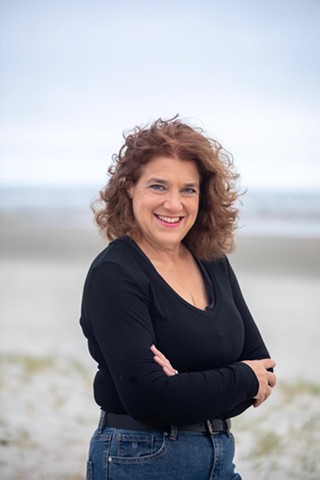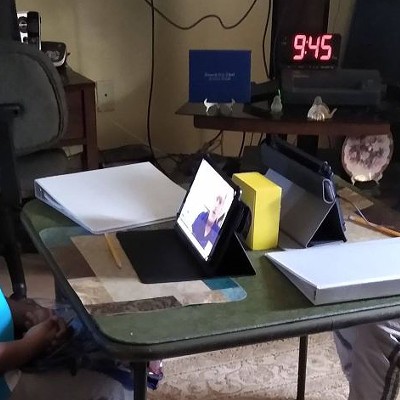AFTER MONTHS of debate about whether unstructured break time and recess are the same thing, Savannah-Chatham County Public School Board members still can’t make a decision.
IEDA, otherwise known as the Unstructured Break Time policy, was last revised Feb. 2, 2005. State law mandates that districts have a policy on unstructured break. The current policy states that students Pre-K through 8 should be given approximately 10 minutes of unstructured break time, but that “breaks may be withheld for disciplinary, academic, or safety reasons.”
In the past 13 years, scientific research has shown that the amount of time in the current policy is woefully inadequate. An outcry of parents testifying to the fact that recess is being withheld has also spurred this policy to be addressed with the goal of being current with national best practices.
School Board President Jolene Byrne has also been echoing the same concerns over her four year term and has been advocating for a policy update regarding what many people call the “recess policy.”
At the Oct. 3 Board meeting, before discussion could even begin on the merits of the proposed policy, outgoing Board member Larry Lower (District 6) made a motion to send the policy back to the Wellness Committee again and Connie Hall (District 3) seconded.
Lower refused to comment on his reason for making the motion, but Hall said, “I am very much in favor of a 30 minute daily recess both for the well-being of the students and their teachers. The rendition we received was suitable as a regulation but much too verbose to serve as a policy. There is also some ambiguity among constituents about the difference between recess and unstructured break time.”
Julie Wade, District 1 School Board Member and chair of the Wellness Committee said, “at the beginning of the discussion months ago, I understood, as did others, that recess was included in unstructured break. Neither term is defined in state law, and state law is silent on recess. So it seemed plausible to conclude that recess was a type of unstructured break. I was in this camp. However, others saw recess and unstructured break as two separate things. There is no correct answer on this issue, just two different points of view. Given these different points of view, the committee stated that the policy should define unstructured break and recess so we knew what the heck we were talking about. The proposed policy did not do that at all, and instead replaced unstructured break with recess, which could potentially violate the state law requirement that we have a policy on unstructured break.”
Prior to the October 3 School Board meeting Jason Hallman, SCCPSS Health & Physical Education Coordinator, indicated that he was satisfied with the proposed policy and that it was in line with best practices of other counties across Georgia.
The Wellness Committee met June 21 to address updating the policy and a proposal was made to the School Board on July 11. The proposed policy was inadequate in that it stated that, “the Board encourages the scheduling of unstructured break time for students in K-12,” but left the length, frequency, timing, and location of breaks to the discretion of the principal.
This raised an outcry from constituents and parents that these breaks could be withheld from students for a disciplinary reasons or to add extra time in the classroom to prepare for standardized testing, thus not allowing students any recess during the long school day.
At the July Board meeting, Board President Jolene Byrne said:
“It’s (recess and unstructured break) the same thing; they get confused but it means recess. It’s called unstructured break because recess is not supposed to be PE, it’s not supposed to be walking laps, and it’s not supposed to be directed activities by adults. It’s supposed to be time for kids to move, to play, to socialize, to go sit under a tree and read a book if they don’t want to socialize, and time to decompress. Ideally socialize and get some exercise, but whatever it is; if you are the introverted kid and you want to sit and read it’s supposed to be that time,” Byrne said.
Referencing the policy presented from the Wellness Committee, Byrne said:
“It says, ‘The policy also gives authority to school principals to determine the specifics of the length, frequency, and timing of recess, including giving the direction that they should ensure that break time does not interfere with academic learning.’ Now, if you are encouraged to provide recess but not required and it’s entirely up to you how long, how often, when, and you’re supposed to make sure that it doesn’t interfere with academic learning, how quickly will we see schools say, ‘We are not going to do recess this week because we have MAP testing and I’ve got to get my kids’ scores up. We need more math.’ How quickly are we going to see, ‘We are not going to do recess for this month because we have GMAS and we are on that failing list and if we don’t get off that list, the state is going to take over and I’m going to lose my job.’ I don’t even have to ask how quickly because it already happens. It happens all the time,” Byrne said.
“These are not outliers. I wish they were outliers, but I have a petition that was sent to this Board with 1,200 signatures, asking us to protect recess and to provide more recess with story after story after story of kids losing recess,” she said.
Byrne expressed further concerns:
“I think that we put a lot of pressure on them (principals), I think the state puts a lot of pressure on them, and they are afraid of failure. They are afraid that their kids are going to slide further and further behind and it’s their heads who are going to roll. So, they put pressure on teachers and teachers put pressure on kids,” she said.
“It’s a cycle, it’s an unhealthy cycle, and it’s one that we at the top as the leaders of this district, should do something about. We should say that children have just as much of a right to physical activity and breaks as they have to lunch, because it’s a physical need,” Byrne said.
Ultimately at the the July 11 meeting, the School Board asked that a SCCPSS survey be conducted to gauge the thoughts of parents, administrators, and teachers and that the Wellness Committee review the survey and come back with a new proposed policy.
The results of the survey showed that 98% of parents and 94% of administrators and teachers think that “students perform better in school with daily recess.”
On the question of should school recess be mandatory, 95% of parents agreed, 79% of administrators, and 84% of teachers.
On the question of length of recess survey participants were to choose between 10, 20 or 30 minutes; an overwhelming majority of parents and teachers indicated that 30 minutes was the appropriate time for recess, and a plurality of administrators also agreed.
The results of the survey along with four different versions of the policy were presented to the Wellness Committee on August 16. Again there was much discussion around the definition of “unstructured break” versus “recess” and the committee could not agree.
The committee instead chose to postpone further discussion until their quarterly November 14 meeting. Failure to substantively address the policy meant that the School Board would not get to consider again for a first read (Board passage requires two reads before a vote) until the Dec. 5 Board Meeting, thus effectively pushing this policy off until the new School Board president and members are seated in January.
This action would result in removing Byrne from the conversation, even though the recess issue has been one of her hallmark concerns for the past four years.
Since the Wellness Committee seemed unable to present a policy to the Board in a timely manner, Byrne drafted a proposed policy for the Board based on the concerns raised at the Wellness Committee meetings and with input considered from fellow Board members.
At the direction of Superintendent Ann Levett, an email was sent to all Wellness Committee members on September 19 by Kurt Hetager, Chief Public Affairs & Administrative Services Office, to all members of the Wellness Committee which asked for immediate “review and feedback” of the proposed policy that Byrne provided.
Dr. Dionne Hoskins-Brown, District 2 Representative replied, “this has a level of detail that I think is unusual for a policy and I would like to get the feedback of wellness professionals. This should be received at the next committee meeting (November 14).”
So, the proverbial kicking the can down the road continues on IEDA Unstructured Break Time as the Board members can’t seem to come to agreement on the definition of the terms “recess” versus “unstructured break time.”
In an impassioned response at the October 3 meeting, Byrne expressed her frustration at not being able to vote on the policy presented.
Michael Johnson (District 7), who also voted against sending the policy back to committee, stated “we have talked about it, dissected it, brought one forth and now we are going to do it again. We need to ensure that our kids are able to burn off their energy so they are able to focus on learning.”
Shawn Kachmar (District 4) voted to send the issue back to the Wellness Committee. Kachmar said that he thinks that the proposed policy needs to be “tweaked” and that he wants “buy in from teachers, administrators, parents, and staff with full vetting by the Wellness Committee and their comments.”
Kachmar opposes taking away all discretion regarding recess because of “a couple of teachers.”
Julie Wade also voted to send the issue back to the Wellness Committee:
“I have been clear that I am not going to support 30 minutes of mandated recess. If you are going to mandate something, you need to put a process in place to insure compliance. Do teachers clock in and out as they enter the playground, do we have a monitor clocking time, do parents send their kids to school with a stopwatch?” she asked.
Wade also said, “whether it is text books, homework, or recess, I do not think the board should be telling teachers how do to their jobs.”
Wade, Dionne Hoskins-Brown, Connie Hall, Shawn Kachmar, Irene Hines, Larry Lower, and Ruby Jones all voted to push the matter back to the Wellness Committee.
Byrne did due diligence when she crafted the proposed policy. Constituents raised this issue during her campaign four years ago, and Byrne has been consistent in advocating to have a recess policy that ensures that all students are given essential breaks on a daily basis.
Research has also shown that in addition to increased physical activity and “brain breaks,” recess / unstructured break time teaches students how to communicate better and enhances their conflict resolution skills.
Perhaps some of the School Board Members would benefit from recess time to learn about conflict resolution.





























